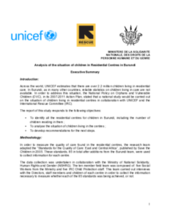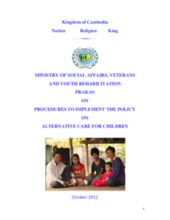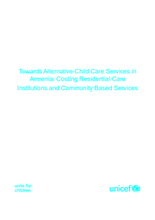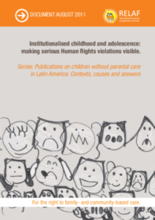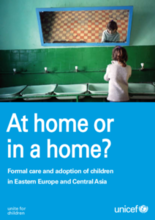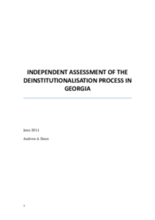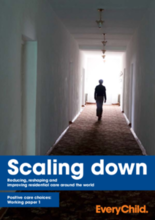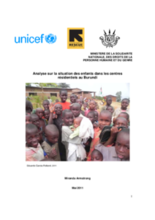Displaying 1311 - 1320 of 1511
The report of this study responds to the objectives of identifying all the residential centres for children in Burundi, including the number of children residing in them; analysing the situation of children living in the centres and developing recommendations for the next steps
This Prakas is intended to define roles and responsibilities of relevant competent agencies and establish procedures, operational guides, and forms to implement the Policy on Alternative Care for Children.
This study commissioned by the Ministry of Gender, Children, and Community Development and financially and technically supported by UNICEF and the Better Care Network, describes the situation of children in institutional care in Malawi.
This recent study by UNICEF in Armenia costed different types of residential care and community based services.
This paper, produced by RELAF, is part of a series of publications on children without parental care in Latin America: Contexts, causes and answers. This document, and others in the series, pertains to the broad topic of children without parental care and examines the particular situation of institutionalised children.
Published by UNICEF, the report At Home or in a Home, provides an overview of the major trends and concerns about children in formal care and institutions as well as adoption Central and Eastern Europe and Central Asia.
This independent assessment examined, specifically, the deinstitutionalisation of children in special education boarding schools and child care institutions in the Republic of Georgia.
Adolescents living in orphanages are at a disadvantage with respect to mental health. The aim of this study was to assess the distribution of psychological symptoms and their association with the level of physical activity (PA) in adolescents living in orphanages.
This paper summarizes the evidence base on residential care to promote better decision making among policy makers and child welfare practitioners
Le Gouvernement du Burundi, en collaboration avec l’UNICEF et l’ONG International Rescue Committee (IRC), a prévu de faire un état de lieux des centres résidentiels pour les enfants.

